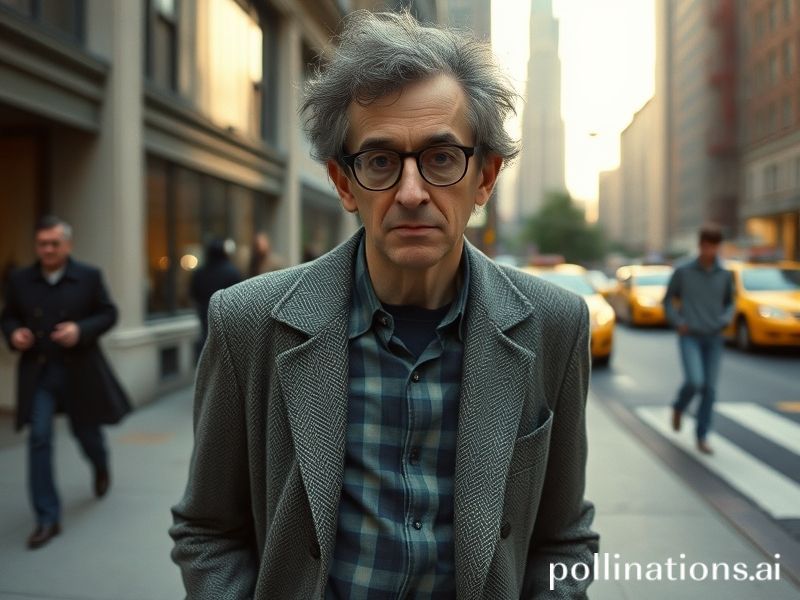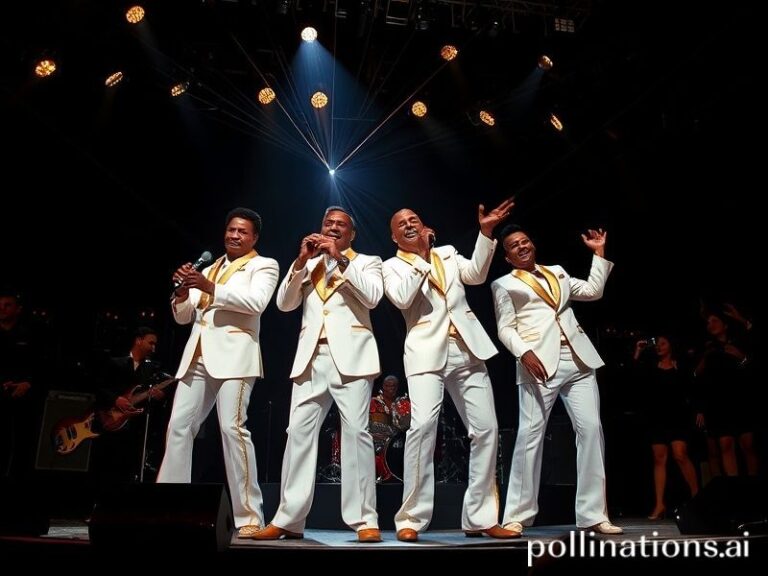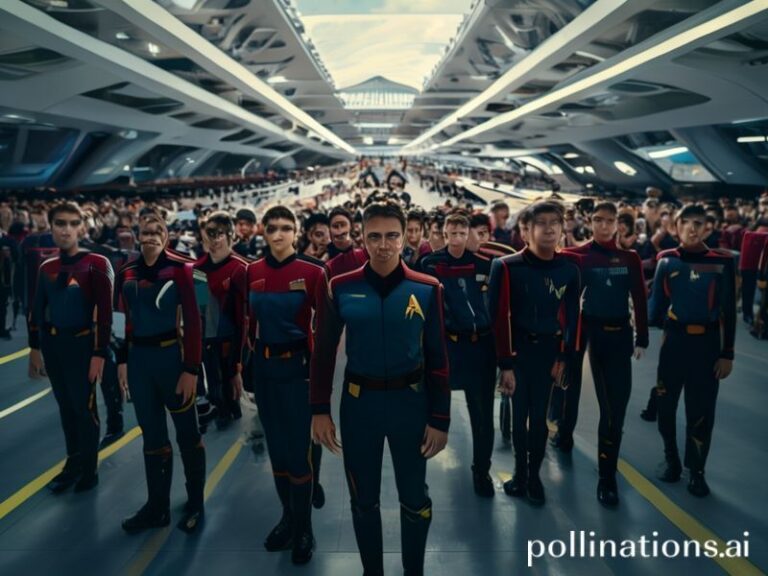Woody Allen: The World’s Guilty Pleasure and Global Rorschach Test
Woody Allen, that diminutive neurotic with horn-rimmed glasses and a lifetime subscription to existential dread, has somehow become the global Rorschach test for the late-capitalist psyche. From Seoul to Seville, his face—equal parts guilty conscience and self-deprecating punchline—adorns subway posters for 1979’s Manhattan next to ads for K-pop comebacks and oat-milk lattes. It’s as if every metro system on earth agreed that nothing says “reliable public transport” quite like a man who once compared the universe to a restaurant with terrible service.
Travelers boarding the Paris Métro’s Line 9 can stare at Allen’s wiry frame under the Eiffel Tower and wonder, “Is this nostalgia or indictment?” The French, who still regard Jerry Lewis as a comedic Kant, treat Allen like an endangered philosophical species. Meanwhile, in Buenos Aires, where inflation climbs faster than Allen’s on-screen panic attacks, bootleg DVDs of Annie Hall sell briskly beside packets of yerba mate. Argentines have a soft spot for fatalism wrapped in one-liners; it pairs nicely with 80% price hikes.
Across the Pacific, South Korean cinephiles binge Allen’s back catalogue on streaming services that also offer Buddhist temple cooking tutorials and true-crime docs about cult leaders. The cognitive dissonance is delicious: viewers toggle between a neurotic Jew kvetching about mortality and serene monks ladling soybean stew, all while the next tab auto-plays a documentary alleging ritual abuse. Somewhere in Seoul, a graduate student is writing a thesis titled “Woody Allen and the Anxiety of Bibimbap,” certain it will land her a post-doc in New Jersey.
The Chinese market, ever pragmatic, simply deepfakes Allen into local rom-coms. Why license the man when you can rent the shtick? Audiences from Chengdu to Shenzhen now watch a CGI Woody bumble through Shanghai traffic, complaining about the afterlife in crisp Mandarin. Netizens nickname him “Wei Xiaobao with a therapist,” a reference to the Qing-dynasty trickster who always lands on his feet. The Communist Party’s censors approve; existential despair is acceptable so long as it doesn’t question housing prices.
Europe, ever the continent that invented both psychoanalysis and genocide, can’t decide whether Allen is a prophet or a perp. Spanish film clubs host midnight screenings of Crimes and Misdemeanors followed by panel discussions titled “God Is Dead, but So Is Dinner.” Italian critics, sipping grappa and quoting Pirandello, insist Allen is merely the American cousin they never wanted. In Berlin—where history’s hangover still lingers like cheap schnapps—audiences laugh nervously at the jokes, unsure whether the guilt onscreen is his or theirs.
The United States, birthplace of both Allen and the #MeToo movement, exports its ambivalence in tidy 90-minute packages. Streaming algorithms now preface 1970s classics with trigger warnings longer than the films themselves. Viewers in Toronto ask Siri if art can be separated from artist while ordering poutine via drone. Canadians, ever polite, feel guilty about feeling guilty, which is peak Allen territory.
What all of this reveals—beyond humanity’s bottomless appetite for angst served with jazz soundtracks—is that Woody Allen has become the planet’s shared guilty pleasure, like fossil fuels or Instagram. We loathe ourselves for loving him, yet we binge in secret, the way we eat instant ramen at 2 a.m. while reading climate reports. His films are anxiety junk food: empty calories wrapped in cultural cachet, seasoned with moral ambiguity.
In the end, Allen’s true international legacy may be as a diagnostic tool. Populations still laughing at his punchlines measure their own tolerance for hypocrisy the way a cardiologist reads an EKG. The world lines up for popcorn and self-examination in equal measure, proving that the scariest joke of all isn’t that life is meaningless—it’s that we keep buying tickets to hear it explained by a guy who looks like he misplaced the instruction manual.







